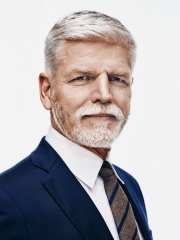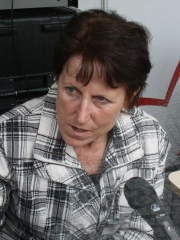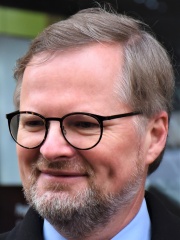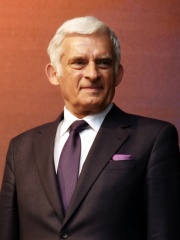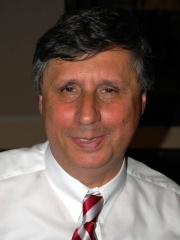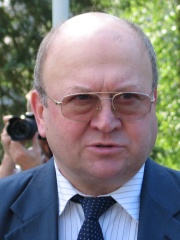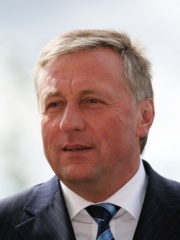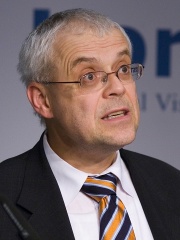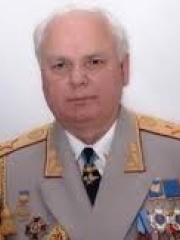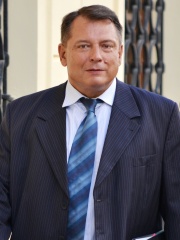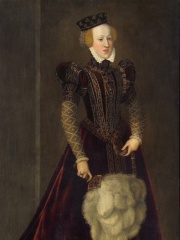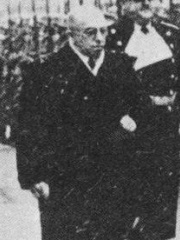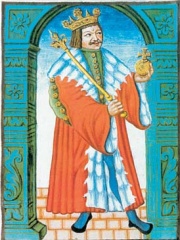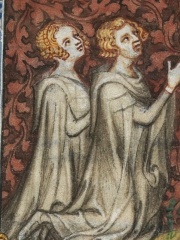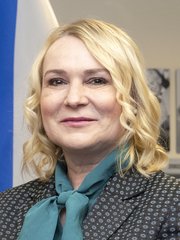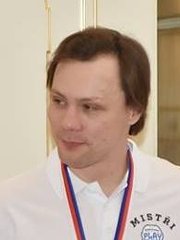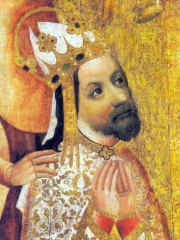
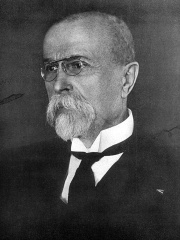
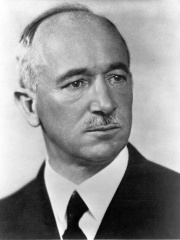
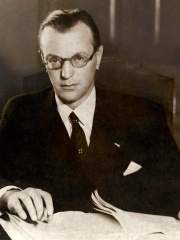
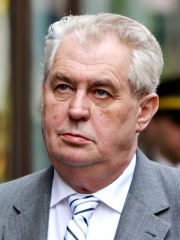

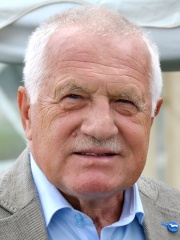
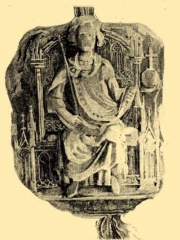
The Most Famous
POLITICIANS from Czechia
This page contains a list of the greatest Czech Politicians. The pantheon dataset contains 19,576 Politicians, 166 of which were born in Czechia. This makes Czechia the birth place of the 23rd most number of Politicians behind Romania, and Hungary.
Top 10
The following people are considered by Pantheon to be the top 10 most legendary Czech Politicians of all time. This list of famous Czech Politicians is sorted by HPI (Historical Popularity Index), a metric that aggregates information on a biography's online popularity. Visit the rankings page to view the entire list of Czech Politicians.

1. Charles IV, Holy Roman Emperor (1316 - 1378)
With an HPI of 82.60, Charles IV, Holy Roman Emperor is the most famous Czech Politician. His biography has been translated into 75 different languages on wikipedia.
Charles IV (German: Karl IV.; Czech: Karel IV.; Latin: Carolus IV; 14 May 1316 – 29 November 1378), also known as Charles of Luxembourg (German: Karl von Luxemburg.; Czech: Karel Lucemburský.; Latin: Carolus Luxemburgensis; Luxembourgish: Karel vu Lëtzebuerg), born Wenceslaus (German: Wenzel, Czech: Václav), was Holy Roman Emperor from 1355 until his death in 1378. He was elected King of Germany (King of the Romans) in 1346 and became King of Bohemia (as Charles I) that same year. He was a member of the House of Luxembourg from his father's side and the Bohemian House of Přemyslid from his mother's side; he emphasized the latter due to his lifelong affinity for the Bohemian side of his inheritance, and also because his direct ancestors in the Přemyslid line included two saints. He was the eldest son and heir of John of Bohemia, King of Bohemia and Count of Luxembourg, who died at the Battle of Crécy on 26 August 1346. His mother, Elizabeth, Queen of Bohemia, was the sister of Wenceslaus III, King of Bohemia and Poland, the last of the male Přemyslid rulers of Bohemia. Charles inherited the County of Luxembourg from his father and was elected king of the Kingdom of Bohemia. On 2 September 1347, Charles was crowned King of Bohemia. On 11 July 1346, the prince-electors chose him as King of the Romans (rex Romanorum) in opposition to Louis IV, Holy Roman Emperor. Charles was crowned on 26 November 1346 in Bonn. After his opponent died, he was re-elected in 1349 and crowned King of the Romans. In 1355, he was crowned King of Italy and Holy Roman Emperor. With his coronation as King of Burgundy at Arles in 1365, he became the crowned ruler of all the kingdoms of the Holy Roman Empire. Having played a key part in the political and cultural history of the Kingdom of Bohemia, he remains a popular historical figure in the Czech lands. The Golden Bull of 1356 marked a structural change in the politics of the Holy Roman Empire. Several aspects of his legacy remain contentious, however. The image of Charles as a wise, pious, peace-loving king (partly constructed by Charles himself) has proved influential until this day, supported by several artistic or scholarly projects produced during Charles's reign or afterwards.

2. Tomáš Garrigue Masaryk (1850 - 1937)
With an HPI of 77.19, Tomáš Garrigue Masaryk is the 2nd most famous Czech Politician. His biography has been translated into 77 different languages.
Tomáš Garrigue Masaryk (7 March 1850 – 14 September 1937) was a Czechoslovak statesman, political activist and philosopher who served as the first president of Czechoslovakia from 1918 to 1935. He is regarded as the founding father of Czechoslovakia. Born in Hodonín, Moravia (then part of the Austrian Empire), Masaryk obtained a doctorate at the University of Vienna and was a professor of philosophy at the Czech Charles-Ferdinand University. He began his political career as a deputy of the Austrian Reichsrat, serving from 1891 to 1893 and from 1907 to 1914. He was an advocate of restructuring the Austro-Hungarian Empire into a federal state, but by the outbreak of the First World War, he had become a supporter of Czech and Slovak independence. He went into exile, and travelled around Europe to organise and promote the Czechoslovak cause. He played a pivotal role in the establishment of the Czechoslovak Legion, which fought against the Central Powers during the war. In 1918, Masaryk, along with his protégés Edvard Beneš and Milan Rastislav Štefánik, travelled to the United States to obtain support from President Woodrow Wilson and Secretary of State Robert Lansing. Their negotiations resulted in the Washington Declaration, which proclaimed the independence of a Czechoslovak state. With the fall of Austria-Hungary in late 1918, the First Czechoslovak Republic received recognition from the Allied powers and Masaryk was recognised as head of its provisional government. He was formally elected president in November, and was reelected three times subsequently. Masaryk presided over a period of stability as Czechoslovakia emerged as a strong democratic state. He resigned from office in 1935 due to old age, and was succeeded by Beneš. He retired to the village of Lány and died two years later at the age of 87.

3. Edvard Beneš (1884 - 1948)
With an HPI of 77.01, Edvard Beneš is the 3rd most famous Czech Politician. His biography has been translated into 63 different languages.
Edvard Beneš (Czech: [ˈɛdvard ˈbɛnɛʃ] ; 28 May 1884 – 3 September 1948) was a Czech politician and statesman who served as the president of Czechoslovakia from 1935 to 1938, and again from 1939 to 1948. During the first six years of his second stint, he led the Czechoslovak government-in-exile during World War II. As president, Beneš faced two major crises, which both resulted in his resignation. His first resignation came after the Munich Agreement and subsequent German occupation of Czechoslovakia in 1938, which resulted in his government's exile in the United Kingdom. The second came about with the 1948 Communist coup, which created a Communist regime in Czechoslovakia. Before his time as president, Beneš was also the first foreign affairs minister (1918–1935) and the fourth prime minister (1921–1922) of Czechoslovakia. The de facto leader of the Czech National Social Party, he was known as a skilled diplomat.

4. Arthur Seyss-Inquart (1892 - 1946)
With an HPI of 76.27, Arthur Seyss-Inquart is the 4th most famous Czech Politician. His biography has been translated into 54 different languages.
Arthur Seyss-Inquart (German: Seyß-Inquart; Austrian German pronunciation: [ˈartuːɐ̯ saɪs ˈɪŋkvart]; 22 July 1892 – 16 October 1946) was an Austrian Nazi politician and convicted war criminal who served as Chancellor of Austria in 1938 for two days before the Anschluss. His positions in Nazi Germany included deputy governor to Hans Frank in the General Government of Occupied Poland, and Reichskommissar for the German-occupied Netherlands. In the latter role, he shared responsibility for the deportation of Dutch Jews and the shooting of hostages. During World War I, Seyss-Inquart fought for the Austro-Hungarian Army with distinction. After the war he became a successful lawyer, and went on to join the governments of Chancellors Engelbert Dollfuss and Kurt Schuschnigg. In 1938, Schuschnigg resigned in the face of a German invasion, and Seyss-Inquart was appointed his successor. The newly installed Nazis proceeded to transfer power to Germany, and Austria subsequently became the German province of Ostmark, with Seyss-Inquart as its governor (Reichsstatthalter). During World War II, Seyss-Inquart served briefly as the Deputy Governor General in occupied Poland and, following the fall of the Low Countries in 1940, he was appointed Reichskommissar of the occupied Netherlands. He was a member of the Schutzstaffel (SS) and held the rank of SS-Obergruppenführer. He instituted a reign of terror, with Dutch civilians subjected to forced labour and the vast majority of Dutch Jews deported and murdered. At the Nuremberg trials, Seyss-Inquart was found guilty of war crimes and crimes against humanity, sentenced to death, and executed by hanging.
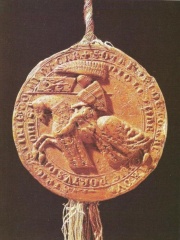
5. Ottokar II of Bohemia (1233 - 1278)
With an HPI of 75.47, Ottokar II of Bohemia is the 5th most famous Czech Politician. His biography has been translated into 48 different languages.
Ottokar II (Czech: Přemysl Otakar II.; c. 1233, in Městec Králové, Bohemia – 26 August 1278, in Dürnkrut, Lower Austria), the Iron and Golden King, was a member of the Přemyslid dynasty who reigned as King of Bohemia from 1253 until his death in 1278. He also held the titles of Margrave of Moravia from 1247, Duke of Austria from 1251, and Duke of Styria from 1260, as well as Duke of Carinthia and landgrave of Carniola from 1269. With Ottokar's rule, the Přemyslids reached the peak of their power in the Holy Roman Empire. His expectations of the imperial crown, however, were never fulfilled. Ottokar was the second son of King Wenceslaus I of Bohemia (reigned 1230–1253). Through his mother, Kunigunde, daughter of Philip of Swabia, he was related to the Holy Roman Emperors of the Hohenstaufen dynasty, which became extinct in the male line upon the execution of King Conradin of Sicily in 1268. Named after his grandfather King Přemysl Ottokar I, he was originally educated for the role of an ecclesiastical administrator, while his elder brother Vladislaus was designated heir of the Bohemian kingdom. He was possibly educated by the Bohemian chancellor Philip of Spanheim, who would later become a rival for the rule of the Duchy of Carinthia.

6. Miloš Zeman (b. 1944)
With an HPI of 74.81, Miloš Zeman is the 6th most famous Czech Politician. His biography has been translated into 83 different languages.
Miloš Zeman (Czech: [ˈmɪloʃ ˈzɛman] ; born 28 September 1944) is a Czech politician who served as the third president of the Czech Republic from 2013 to 2023. He also previously served as the prime minister of the Czech Republic from 1998 to 2002. As leader of the Czech Social Democratic Party from 1993 to 2001, he is credited with the revival of the party into one of the country's major political forces. Zeman briefly served as the President of the Chamber of Deputies from 1996 to 1998. Born in Kolín to a modest family, Zeman joined the Communist Party of Czechoslovakia in 1968, but was expelled two years later due to his opposition to the Warsaw Pact invasion. Following the Velvet Revolution in 1989, he joined the Czech Social Democratic Party, which he led into the 1996 election. Zeman became Prime Minister following the 1998 legislative election after striking a controversial pact with his long-time rival Václav Klaus, which was heavily criticized by President Václav Havel, the media and opposition for weakening the system of checks and balances. His government continued the privatization of publicly owned industries and established new administrative regions. Zeman's cabinet also attempted to change the electoral system to first-past-the-post voting, which was struck down by the Constitutional Court. Under his leadership, the Czech Republic joined NATO in 1999. Zeman was the last leader to vote in favor of the 1999 bombing of Yugoslavia, effectively green-lighting the operation. He ran for president in 2003 but was eliminated after his own party members did not vote for him. In 2013, Zeman was elected president of the Czech Republic, becoming the first directly elected president in the nation's history; his predecessors were elected by the Parliament. In 2018, he was re-elected for a second term. His presidency was marked by deepening polarization and political discontent. Zeman has been a subject of widespread criticism and source of controversy. He was widely regarded as having pursued favourable policies towards Russia and China, while frequently clashing with traditional allies in the European Union and NATO. However, some of his supporters contest this characterization, and Zeman subsequently strongly opposed the Russian invasion of Ukraine. During his presidency, many of his high-level staff and associates were targets of investigations for mishandling classified information, corruption and fraud, among others. Zeman left office in 2023 and was succeeded by Petr Pavel.

7. Klement Gottwald (1896 - 1953)
With an HPI of 74.43, Klement Gottwald is the 7th most famous Czech Politician. His biography has been translated into 54 different languages.
Klement Gottwald (Czech pronunciation: [ˈklɛmɛnt ˈɡotvalt]; 23 November 1896 – 14 March 1953) was a Czech communist politician, who was the leader of the Communist Party of Czechoslovakia from 1929 until his death in 1953 – titled as general secretary until 1945 and as chairman from 1945 to 1953. He was the first leader of Communist Czechoslovakia from 1948 to 1953. Following the collapse of democratic Czechoslovakia after the Munich Agreement, the right-wing leadership of the Czechoslovak Second Republic banned the Communist Party, forcing Gottwald to emigrate to the Soviet Union in November 1938. In 1943, Gottwald agreed with representatives of the Czechoslovak-government-in-exile located in London, along with President Edvard Beneš, to unify domestic and foreign anti-fascist resistance and form the National Front. He was the 14th prime minister of Czechoslovakia from July 1946 until June 1948, the first Communist to hold the post. In June 1948, he was elected as Czechoslovakia's first Communist president, four months after the 1948 coup d'état in which his party seized power with the backing of the Soviet Union. He held the post until his death.

8. Václav Klaus (b. 1941)
With an HPI of 73.98, Václav Klaus is the 8th most famous Czech Politician. His biography has been translated into 72 different languages.
Václav Klaus (Czech pronunciation: [ˈvaːtslaf ˈklaus]; born 19 June 1941) is a Czech economist and politician who served as the second president of the Czech Republic from 2003 to 2013. From July 1992 until the dissolution of Czechoslovakia in January 1993, he served as the second and last prime minister of the Czech Republic while it was a federal subject of the Czech and Slovak Federative Republic, and then as the first prime minister of the newly independent Czech Republic from 1993 to 1998. During the Communist era, Klaus worked as a bank clerk and forecaster. After the fall of Communism in November 1989, he became the Minister of Finance in the "government of national unity". In 1991, Klaus was the principal co-founder of the Civic Democratic Party (ODS). He was prime minister from 1992 to 1997, and from January to February 1993 he held certain powers of the Presidency. His government fell in the autumn of 1997; after the elections in the spring of 1998, he became the president of the Chamber of Deputies (1998–2002). After ODS lost the parliamentary elections of 2002, he withdrew from politics briefly, before being elected President of the Czech Republic in February 2003. He was re-elected in 2008 for a second five-year term. His presidency was marked by many controversies over his strong opinions on issues ranging from global warming denial to Euroscepticism, and a wide-ranging amnesty declared in his last months of office, triggering his indictment by the Czech Senate on charges of high treason. Klaus left active politics after his second presidential term ended in March 2013 but continues to comment on domestic and foreign policy issues. He has expressed support for European far-right parties including Alternative for Germany, the Freedom Party of Austria, and Fidesz. His political views have been referred to as Klausism.

9. Wenceslaus III of Bohemia (1289 - 1306)
With an HPI of 73.88, Wenceslaus III of Bohemia is the 9th most famous Czech Politician. His biography has been translated into 42 different languages.
Wenceslaus III (Czech: Václav III, Hungarian: Vencel, Polish: Wacław, Croatian: Vjenceslav, Slovak: Václav; 6 October 1289 – 4 August 1306) was King of Hungary and Croatia from 1301 to 1305, and King of Bohemia and Poland from 1305. He was the son of Wenceslaus II, King of Bohemia (later also crowned King of Poland), and Judith of Habsburg. While still a child, Wenceslaus was betrothed to Elizabeth, the only daughter of Andrew III of Hungary. After Andrew's death in early 1301, most Hungarian lords and prelates elected Wenceslaus as king, although Pope Boniface VIII supported a rival claimant, Charles Robert of the royal House of Anjou (Kingdom of Naples). Wenceslaus was crowned king of Hungary on 27 August 1301. He signed his charters under the name Ladislaus in Hungary. His rule was only nominal because a dozen powerful lords held sway over large territories in the kingdom. His father realized that Wenceslaus's position could not be strengthened and took him back from Hungary to Bohemia in August 1304. Wenceslaus succeeded his father in Bohemia and Poland on 21 June 1305. He abandoned his claim to Hungary in favour of Otto III, Duke of Bavaria on 9 October. Wenceslaus granted large parcels of the royal domains to his young friends in Bohemia. A local claimant to the Polish throne, Władysław the Elbow-high, who had started conquering Polish territories during the rule of Wenceslaus's father, captured Kraków in early 1306. Wenceslaus decided to invade his rival's territories in Poland, but he was murdered before starting his campaign. He was the last of the male Přemyslid rulers of Bohemia.
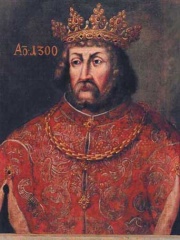
10. Wenceslaus II of Bohemia (1271 - 1305)
With an HPI of 73.77, Wenceslaus II of Bohemia is the 10th most famous Czech Politician. His biography has been translated into 43 different languages.
Wenceslaus II Přemyslid (Czech: Václav II.; Polish: Wacław II Czeski; 27 September 1271 – 21 June 1305) was King of Bohemia (1278–1305), Duke of Cracow (1291–1305), and King of Poland (1296–1305). He was the only surviving son of King Ottokar II of Bohemia and Ottokar's second wife Kunigunda. He was born in 1271, ten years after the marriage of his parents. Kunigunda was the daughter of Rostislav Mikhailovich, lord of Slavonia, son of a Grand Prince of Kiev, and Anna of Hungary, daughter of Béla IV of Hungary. His great-grandfather was the German king Philip of Swabia. Wenceslaus II was the grandfather of the Holy Roman Emperor, Charles IV. He was a member of the Přemyslid dynasty.
People
Pantheon has 166 people classified as Czech politicians born between 795 and 1993. Of these 166, 42 (25.30%) of them are still alive today. The most famous living Czech politicians include Miloš Zeman, Václav Klaus, and Petr Pavel. The most famous deceased Czech politicians include Charles IV, Holy Roman Emperor, Tomáš Garrigue Masaryk, and Edvard Beneš. As of April 2024, 10 new Czech politicians have been added to Pantheon including Jana Černochová, Jiří Hudler, and Dominik Graňák.
Living Czech Politicians
Go to all RankingsMiloš Zeman
1944 - Present
HPI: 74.81
Václav Klaus
1941 - Present
HPI: 73.98
Petr Pavel
1961 - Present
HPI: 69.99
Jarmila Kratochvílová
1951 - Present
HPI: 66.68
Petr Fiala
1964 - Present
HPI: 65.47
Jerzy Buzek
1940 - Present
HPI: 64.58
Jan Fischer
1951 - Present
HPI: 63.32
Vladimír Remek
1948 - Present
HPI: 62.60
Mirek Topolánek
1956 - Present
HPI: 61.78
Vladimír Špidla
1951 - Present
HPI: 58.87
Vasyl Durdynets
1937 - Present
HPI: 56.68
Jiří Paroubek
1952 - Present
HPI: 56.67
Deceased Czech Politicians
Go to all RankingsCharles IV, Holy Roman Emperor
1316 - 1378
HPI: 82.60
Tomáš Garrigue Masaryk
1850 - 1937
HPI: 77.19
Edvard Beneš
1884 - 1948
HPI: 77.01
Arthur Seyss-Inquart
1892 - 1946
HPI: 76.27
Ottokar II of Bohemia
1233 - 1278
HPI: 75.47
Klement Gottwald
1896 - 1953
HPI: 74.43
Wenceslaus III of Bohemia
1289 - 1306
HPI: 73.88
Wenceslaus II of Bohemia
1271 - 1305
HPI: 73.77
Joanna of Austria, Grand Duchess of Tuscany
1547 - 1578
HPI: 73.59
Emil Hácha
1872 - 1945
HPI: 73.53
George of Poděbrady
1420 - 1471
HPI: 73.30
Bonne of Luxembourg
1315 - 1349
HPI: 72.43
Newly Added Czech Politicians (2025)
Go to all RankingsJana Černochová
1973 - Present
HPI: 44.17
Jiří Hudler
1984 - Present
HPI: 37.95
Dominik Graňák
1983 - Present
HPI: 36.96
Michal Kempný
1990 - Present
HPI: 35.83
Ondřej Němec
1984 - Present
HPI: 34.53
Tomáš Hertl
1993 - Present
HPI: 34.12
Jakub Nakládal
1987 - Present
HPI: 34.12
Michal Čupr
1991 - Present
HPI: 33.77
Ladislav Šmíd
1986 - Present
HPI: 33.68
Petr Mrázek
1992 - Present
HPI: 32.96
Overlapping Lives
Which Politicians were alive at the same time? This visualization shows the lifespans of the 25 most globally memorable Politicians since 1700.

